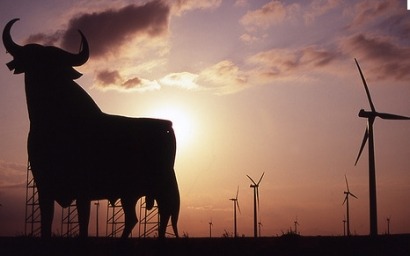
The long-awaited reform of the energy market is a step closer to fruition after the Spanish cabinet finalised the Energy Bill, which it has now passed to Parliament for approval. According to the Government, the bill will ensure Spain’s spiralling tariff deficit is contained. Without it, the office of President Rajoy said, the accumulated deficit would “continue to rise year-on-year, and could double by 2015”.
The “fiscal measures for sustainable energy” set forth in the bill are designed to bring down the deficit to €15 billion in 2012, and zero by 2013: an objective which the Minster for Industry, José Manuel Soria, believes will be achieved.
While the aim of the Energy Bill is laudable, members of the renewable energy sector have criticised some of the measures therein, claiming that the will actually harm the clean energy industry rather than promote sustainable energy.
On the one hand, the bill introduces a tax on radioactive waste production and storage, and a “green cent” tax on natural gas, coal and fuel-oil and diesel, but it also imposes a 6% tax on the sale of “green electricity”, which, the government calculates, will have an impact on the renewable energy and cogeneration sector of €688 million.
The Spanish Wind Energy Association (AEE) has already reacted to Friday’s news, claiming that the 6% tax on electricity generation will have an impact on the wind of €241 million in 2013 and could prompt an exodus of companies from Spain.
“These measures should have been discussed with the sector beforehand,” said AEE in a press statement on Friday evening. “The wind sector has repeatedly demonstrated its willingness to make concessions for the good of the country and its economic situation, provided they are fair and negotiated. In this regard, it should be remembered that wind is the technology that supports higher taxation because, it not only pays the taxes that are common to other technologies, but also the levies imposed in some regions.”
The wind association warns that the new tax will put extra pressure on a sector that is already experiencing a period of high uncertainty due to the moratorium imposed on the feed-in tariff for renewable energies in Royal Decree-Law 1/2012 and the lack of a regulatory framework beyond 31 December 2012.
In this regard, AEE calls on the Government to begin discussions about a new regulatory framework for 2013 and beyond “as a matter of urgency”, as there are currently no plans for the future and this year manufacturers have received no new orders for wind turbines for the domestic market, forcing them to consider their stay in Spain.
“Spain needs productive sectors that create jobs more than ever to help lift it out of the recession and change the country's economic model for the future,” says AEE. “The wind industry is a model: it has always grown in line with its objectives; it is a world reference, creating wealth and jobs, reducing fossil fuel imports, exporting technology… it is the technological image of Spain and is the most competitive renewable technology.”
Anpier, Spain’s Association of Renewable Energy Investors, echoes AEE’s concerns, saying that the new 6% tax on renewables means that the solar photovoltaic sector will now have to pay up to 36% tax on its turnover, taking the sector beyond what it describes as “the threshold of reasonable returns”.
"The reform is unfair and insufficient, because it does not take into account the differences between energy sources that damage the environment and those we need as a solution,” commented José Luis García Ortega, Energy Coordinator of Greenpeace Spain, on Friday. “Taxing renewable energy makes no sense and will not resolve the current problems faced by the Spanish energy system”.
For additional information:

